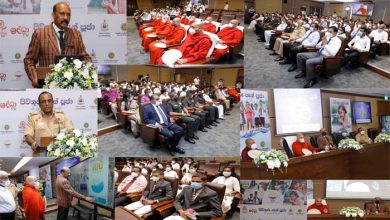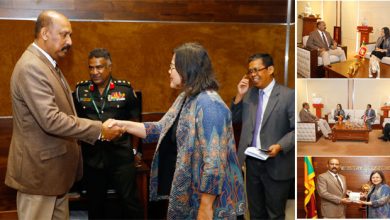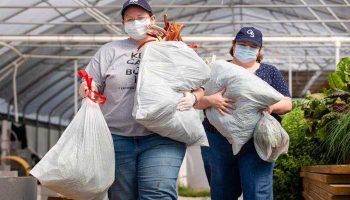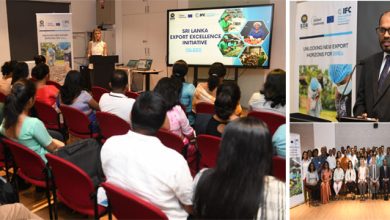
Ambassador of the Russian Federation to Colombo, His Excellency Levan S. Dzhagaryan met the Defence Secretary Air Vice Marshal Sampath Thuyacontha (Retd) at the Defence Ministry in Defence Headquarters Complex, Sri Jayewardenepura, Kotte today (Mar 25).
Following a warm reception the Defence Secretary had a cordial discussion with the Russian envoy on matters of bilateral importance and mutual relevance.






